How to claim Universal Credit
There are 7 steps to take to apply for Universal Credit.
Before following these steps, please read our Universal Credit page to find out more about this government benefit.
Step 1: Check if you are eligible for Universal Credit
To get Universal Credit you must:
- be 18 or over (you can sometimes get Universal Credit if you are 16 or 17)
- be under State
Pension
 A pension is money you get when you are older to pay for the things you need. You can pay money into your pension when you are working so there is more money for when you are older.
age
A pension is money you get when you are older to pay for the things you need. You can pay money into your pension when you are working so there is more money for when you are older.
age - live in the UK
- have £16,000 or less in money, savings and investments. This is the same for a couple as well as single claimants.
Step 2: Check if you will be better off
If you already get benefits or
tax
 Tax is the money that pays for things like schools, hospitals and the police. There are different types of taxes like
income tax
Tax is the money that pays for things like schools, hospitals and the police. There are different types of taxes like
income tax
 Income tax is the money that is taken out of the money you earn every month. It helps to pay for things we all need like hospitals and schools.
,
VAT
Income tax is the money that is taken out of the money you earn every month. It helps to pay for things we all need like hospitals and schools.
,
VAT
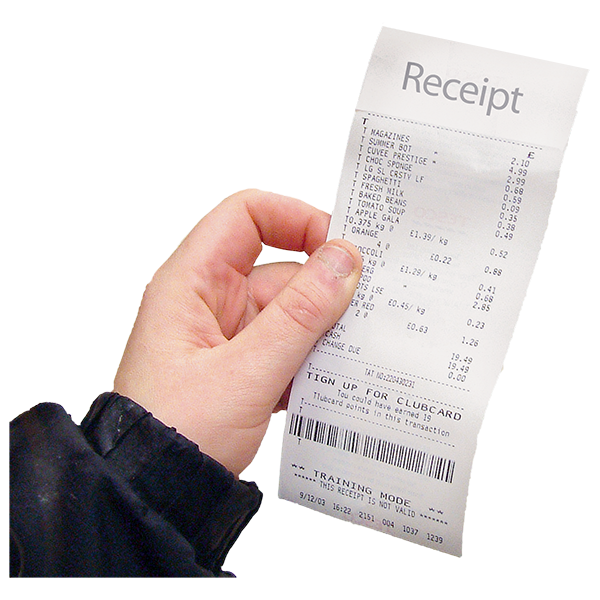 VAT is also called Value Added Tax. VAT is the extra money you pay when you buy things. The money goes to
the government
VAT is also called Value Added Tax. VAT is the extra money you pay when you buy things. The money goes to
the government
 The Government are the people who run the country. The Government decide how much tax people should pay and how things like the National Health Service (NHS) should work.
to pay for things like schools and hospitals.
and
council tax
The Government are the people who run the country. The Government decide how much tax people should pay and how things like the National Health Service (NHS) should work.
to pay for things like schools and hospitals.
and
council tax
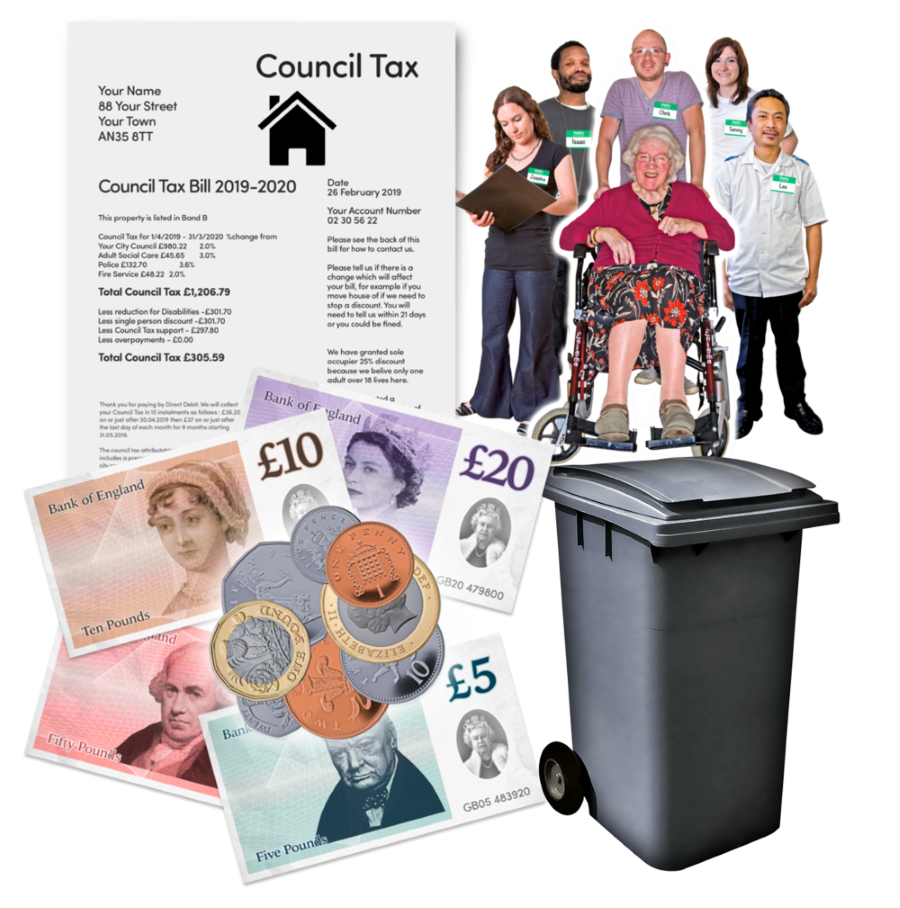 Council
Council
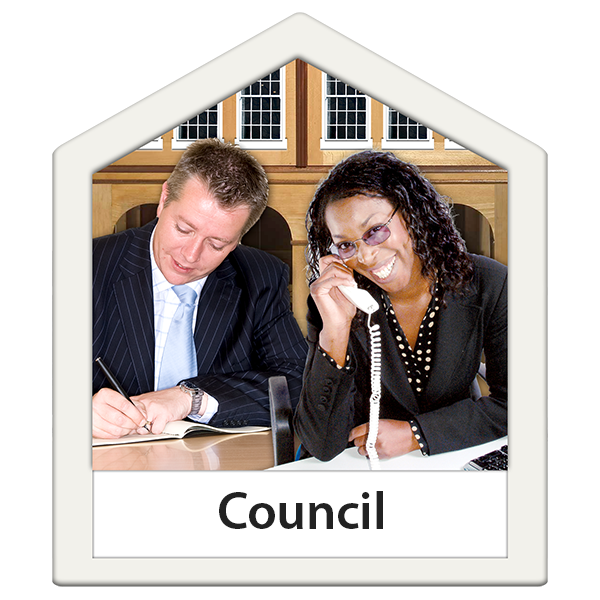 A council is also called a
local authority
A council is also called a
local authority
 A local authority is also called a council. They are a group of people who make decisions about some of the things in the area where you live like schools,
social care
A local authority is also called a council. They are a group of people who make decisions about some of the things in the area where you live like schools,
social care
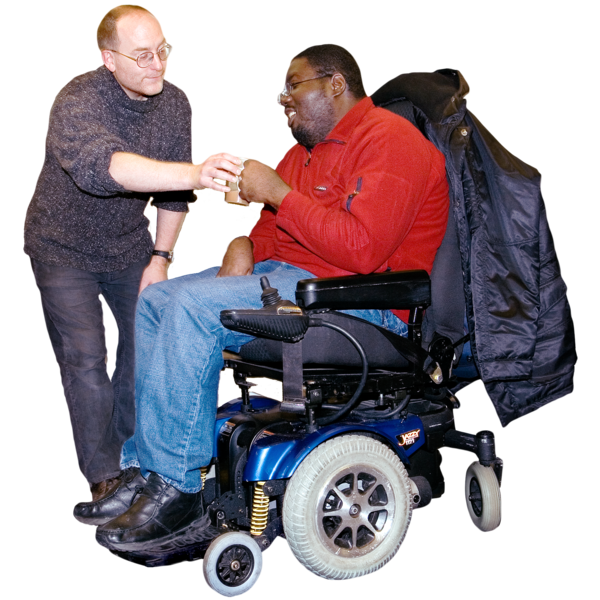 Social care means the services that give care and support to people who need it.
(support for people), parks and dustbin collection.
. They are a group of people who make decisions about some of the things in the area where you live. These include: schools, social care (support for people), parks and dustbin collection.
Tax is the money that people pay to the
council
Social care means the services that give care and support to people who need it.
(support for people), parks and dustbin collection.
. They are a group of people who make decisions about some of the things in the area where you live. These include: schools, social care (support for people), parks and dustbin collection.
Tax is the money that people pay to the
council
 A council is also called a
local authority
A council is also called a
local authority
 A local authority is also called a council. They are a group of people who make decisions about some of the things in the area where you live like schools,
social care
A local authority is also called a council. They are a group of people who make decisions about some of the things in the area where you live like schools,
social care
 Social care means the services that give care and support to people who need it.
(support for people), parks and dustbin collection.
. They are a group of people who make decisions about some of the things in the area where you live. These include: schools, social care (support for people), parks and dustbin collection.
. It helps to pay for things like social care (support for people), parks and dustbin collection.
.
credits, they might end if you apply for Universal Credit and you will not be able to apply for them again. You should work out if you will be better off before you or your partner claim Universal Credit.
Social care means the services that give care and support to people who need it.
(support for people), parks and dustbin collection.
. They are a group of people who make decisions about some of the things in the area where you live. These include: schools, social care (support for people), parks and dustbin collection.
. It helps to pay for things like social care (support for people), parks and dustbin collection.
.
credits, they might end if you apply for Universal Credit and you will not be able to apply for them again. You should work out if you will be better off before you or your partner claim Universal Credit.
To check if you will be better off, you can use a benefits calculator or ask a local benefits adviser.
Step 3: Make sure you have the right information to hand
You will need:
- your name, address and telephone number
- your date of birth
- your
National Insurance
 National Insurance is a type of tax. It is money that is taken out of the money you earn each month. You pay National Insurance so that you can get a pension when you are older.
number, if you have one (you can find this on letters about tax, pensions and benefits)
National Insurance is a type of tax. It is money that is taken out of the money you earn each month. You pay National Insurance so that you can get a pension when you are older.
number, if you have one (you can find this on letters about tax, pensions and benefits) - your bank or building society account number and sort code
- some ID, like a passport, driving licence, debit card, tenancy agreement or energy bill
You will also need to know:
- how much money you earn
- how much you pay for rent and service charges
- how much you pay for childcare (if you want help to pay for childcare)
- how much money you have in savings and investments, like shares or a property you rent out
You will need to be able to say how your disability or health condition affects your work.
Step 4: Get someone to help you if you want
If you want some help to apply for Universal Credit, you can:
- ask someone you trust to help you
- go to the jobcentre and ask for help
- ask a local
organisation
 An organisation are a group of people who work together.
who helps people with their benefits
An organisation are a group of people who work together.
who helps people with their benefits
Step 5: Apply for Universal Credit
You can apply for Universal Credit online or by phone.
Online
If you apply online, as well as the information in step 3 you will need:
- an email address
- access to a phone
You will need to create an online account.
After you have created your account, you must complete your claim within 28 days or you will have to start your claim again.
If you live with your partner, you will both need to create accounts. You’ll link them together when you claim. You cannot claim by yourself.
By phone
If you want to claim by phone, contact the Universal Credit helpline:
- Phone: 0800 328 5644
- Textphone: 0800 328 1344
- Relay UK: 18001 then 0800 328 5644
- Relay UK is for people who cannot hear or speak on the phone.
If you live with your partner, you will both need to apply for Universal Credit.
Applying for Universal Credit If you have a disability or a health condition
When you apply for Universal Credit, you can say if you have a disability or health condition that affects your ability to work.
If your disability or health condition means that you are unable to look for work, you will need to provide medical evidence such as a fit note (also known as a sick note) from day 8 onwards.
You will also have a Work Capability
Assessment
 An assessment is a way of finding out what help a person needs. When you have an assessment, you might have to go to a meeting or fill in a form.
. The Work Capability Assessment is used to find out how much your health condition or disability affects your ability to work. It assesses what you can do, as well as what you cannot do.
An assessment is a way of finding out what help a person needs. When you have an assessment, you might have to go to a meeting or fill in a form.
. The Work Capability Assessment is used to find out how much your health condition or disability affects your ability to work. It assesses what you can do, as well as what you cannot do.
It is used to assess if you:
- are fit for work (also known as ‘capable for work’)
- need to prepare to work in the future, but have limited capability for work (LCW)
- have limited capability for work and work related activity (LCWRA)
It will also assess if you will be paid extra Universal Credit because of your disability or health condition.
You’ll be asked questions about how your condition affects you in your day-to-day life. It gives you the opportunity to explain if, and how, your health condition or disability may vary over time.
As part of the assessment, you will be sent a Capability for Work questionnaire (UC50). You will be asked to send the completed UC50 questionnaire to the Centre for Health and Disability Assessments by the date requested on the letter.
You might also have an assessment face-to-face, by phone or by video. If you want some help or support, you can have someone with you at the Work Capability Assessment.
The assessment will include questions about how easy or difficult you find it to do things like:
- standing
- sitting
- understanding information
- communicating information
You should explain if your ability to complete each task varies and if you would need any help or support to do it. Explain about any pain, tiredness or discomfort you would feel completing each task and if you would be able to do it repeatedly.
Step 6: Getting your Universal Credit decision
If you are eligible for Universal Credit, you will start to receive payments within 5 weeks of making your claim. Your payments will be paid directly into your bank account.
Before you are paid Universal Credit, you’ll need to accept an agreement called a ‘claimant commitment’. This is a record of what you agree to do to:
- prepare for and look for work
- increase your earnings, if you are already working.
What you need to do depends on if you:
- have a disability or health condition health condition
- care for someone
- have a child under 13
- earn above a certain amount
You will have a meeting to discuss your claimant commitment. The meeting usually takes place at the jobcentre. You might be asked to take some ID with you to the meeting.
If you find it difficult to go to a meeting at the jobcentre because of your health condition or disability, you can change where you have the meeting. You can also say if you need to take someone with you to the meeting.
In this meeting you’ll discuss your circumstances and talk about anything that could make it hard for you to do what’s in your commitment. For example, if you have a
learning disability
 A learning disability is to do with the way someone's brain works. It makes it harder for someone to learn, understand or do things.
, or if you care for someone.
A learning disability is to do with the way someone's brain works. It makes it harder for someone to learn, understand or do things.
, or if you care for someone.
You must do everything you agree to in your commitment or your payment could be reduced or stopped. This is called a sanction.
If you do not go to your ‘claimant commitment’ meeting, or do not go to a meeting where staff can check your ID, your Universal Credit claim might be closed.
Step 7: What you can do if your Universal Credit claim is unsuccessful
If your application for Universal Credit is unsuccessful or you are unhappy with the outcome, you should contact the Department of Work and Pensions (DWP) within one month of the date of decision to request a
mandatory
 Mandatory means that something must be done.
reconsideration.
Mandatory means that something must be done.
reconsideration.
You can ask for mandatory reconsideration by using your Universal Credit journal or over the phone, but we recommend that you do it in writing, so you have a record of your request. If you need more time, contact the DWP and ask for an extension.
For more information visit the government webpage about asking for a mandatory reconsideration and requesting an appeal.
If your mandatory reconsideration is unsuccessful, you have one month from the date of the mandatory reconsideration decision letter to appeal the decision. The
appeal
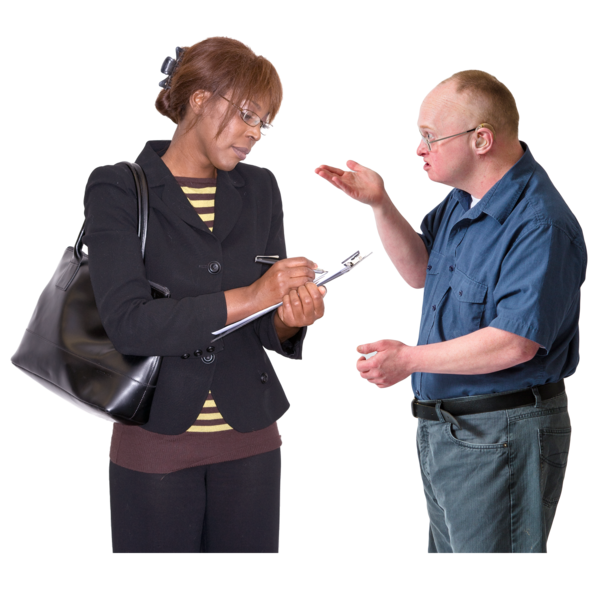 To appeal means saying you want someone to think about a decision again.
will be looked at by an independent tribunal.
To appeal means saying you want someone to think about a decision again.
will be looked at by an independent tribunal.
The 'Asking for a mandatory reconsideration and requesting an appeal' page will help you with an appeal
Frequently asked questions about Universal Credit
When will I receive my first Universal Credit payment?
If you are eligible for Universal Credit, you will start to receive payments within 5 weeks of making your claim. Your payments will be paid directly into your bank account.
If I have an advance how much will I have to pay back?
If you need help to pay your bills or cover other costs while you wait for your first Universal Credit payment, you can apply to get an advance. You will have to pay back all of the advance out of your Universal Credit payments. You must usually pay back the advance within 24 months. You start paying it back out of your first payment.
Will I receive less money on Universal Credit compared to Employment Support Allowance?
Universal Credit is replacing Income-related
Employment
 Employment means having a job.
and Support Allowance (ESA). If you are getting ESA, you do not need to do anything unless your circumstances change, or you get a letter called a ‘
Migration Notice
Employment means having a job.
and Support Allowance (ESA). If you are getting ESA, you do not need to do anything unless your circumstances change, or you get a letter called a ‘
Migration Notice
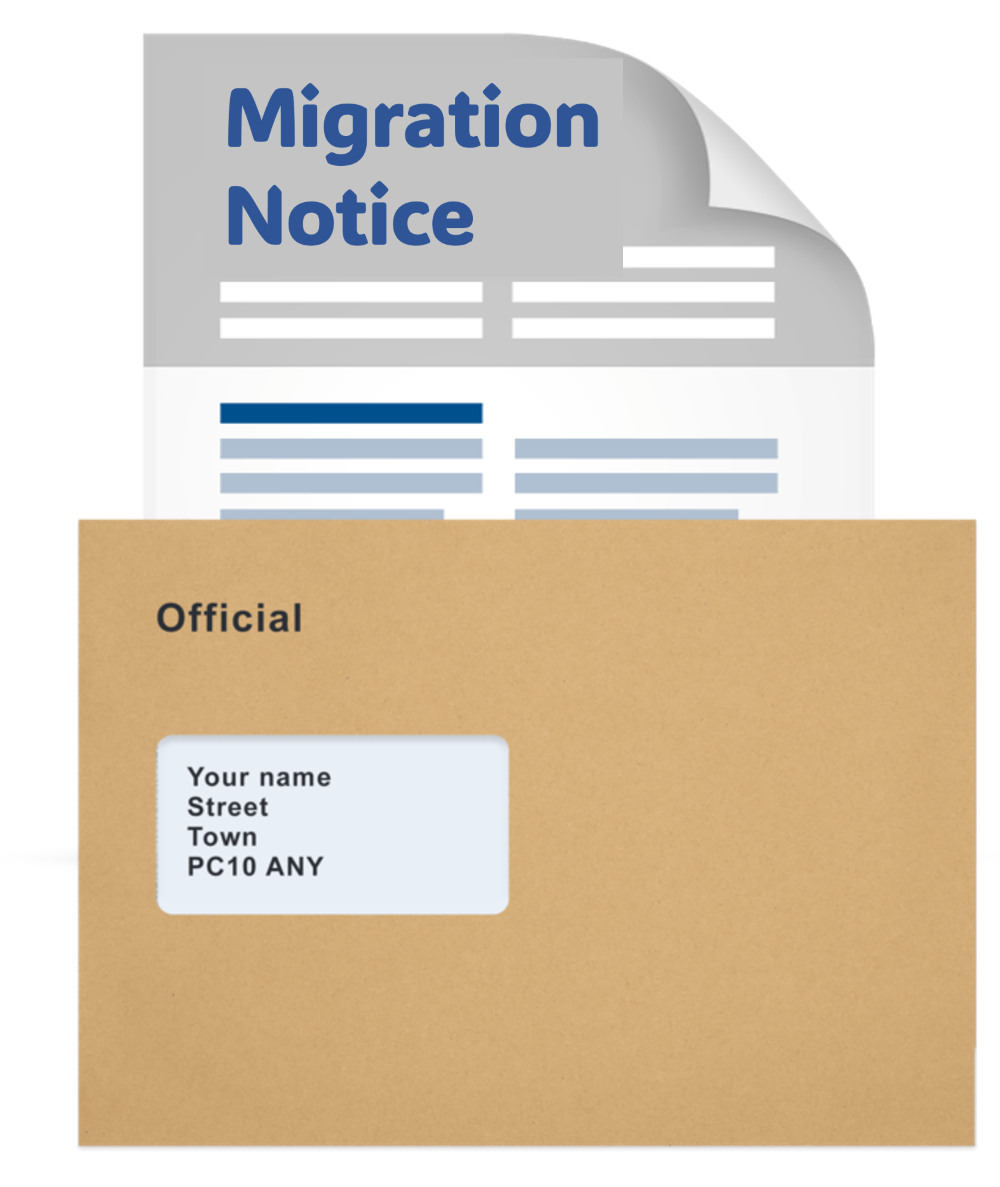 A migration notice is a letter saying that one of your benefits will stop and you need to claim a different benefit.
’ telling you that you must claim Universal Credit.
A migration notice is a letter saying that one of your benefits will stop and you need to claim a different benefit.
’ telling you that you must claim Universal Credit.
If the amount you are entitled to on your existing benefits is more than you’ll get on Universal Credit, a top up is available. This is called a ‘transitional protection’ payment. You can only get this top up if you have received a Migration Notice and claim by the deadline date on your letter. If your circumstances change after you’ve made your claim, any transitional protection you receive may stop.
If I change my address, will I have to Claim Universal Credit?
If you are receiving benefits and you change your address, you have to report this as a change in circumstances. This may mean that your benefit will stop and you will have to claim Universal Credit instead.
What are the groups within Universal Credit for people with disabilities?
If you have a health condition or a disability which affects your ability to work, the outcome of your Work Capability Assessment will decide which group you are placed in.
It is used to assess if you:
- are fit for work (also known as ‘capable for work’)
- need to prepare to work in the future, but have limited capability for work (LCW)
- have limited capability for work and work related activity (LCWRA).
Will I be made to find a job?
It depends which group you are placed in after your Work Capability Assessment.
If you’re fit for work (also known as ‘capable for work’), you will need to agree to look for work that is suitable for your health condition.
If you need to prepare to work in the future, but have limited capability for work (LCW), you can work if you feel able to do so. Your work coach will discuss your situation and agree steps to help you start preparing for work. For example, by writing a
CV
 A CV is also called a Curriculum Vitae. It is a document with information about: your skills, your qualifications and any jobs or volunteering you have done. You may have to send a CV when you try to get a job.
.
A CV is also called a Curriculum Vitae. It is a document with information about: your skills, your qualifications and any jobs or volunteering you have done. You may have to send a CV when you try to get a job.
.
If you have limited capability for work and work related activity (LCWRA), you do not need to look for work or prepare for work. You can work if you feel able to do so.
Will I get extra money if I can’t look for work or get a job?
It depends which group you are placed in after your Work Capability Assessment.
If you are placed in the Limited Capability for Work (LCW) group, you will get paid an extra amount of Universal Credit called the LCW component if all the following apply:
- you were receiving benefit before 3 April 2017
- you were previously assessed as having LCW
- this claim is on going and the assessment was related to the health condition you currently have.
If you are placed in the limited capability for work and work related activity (LCWRA) group you will usually get an extra payment as well as your standard allowance.
I do not agree with the decision about the group I have been placed in after my Work Capability Assessment. How can I challenge it?
If your application for Universal Credit is unsuccessful or you are unhappy with the outcome, you should contact the Department of Work and Pensions (DWP) within one month of the date of decision to request a mandatory reconsideration.
You can ask for mandatory reconsideration by using your Universal Credit journal or over the phone, but we recommend that you do it in writing, so you have a record of your request. If you need more time, contact the DWP and ask for an extension.
For more information visit the government webpage about asking for a mandatory reconsideration and requesting an appeal.
The information on this page is for guidance only. Mencap hold no responsibility for DWP processes, timescales, decisions and service.
As well as the DWP you can also contact the Learning Disability Helpline about any general welfare benefit queries.
